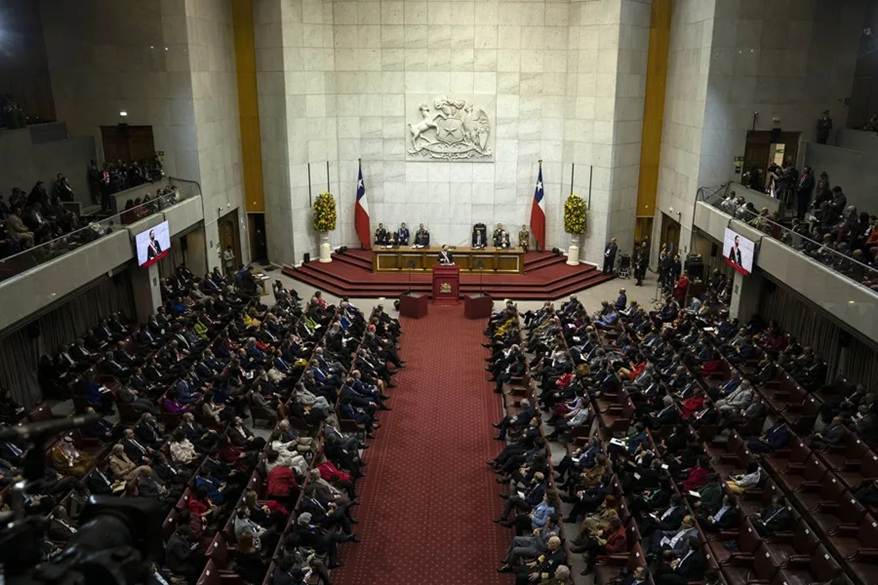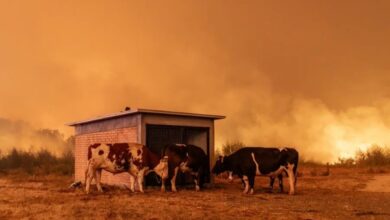Chile’s Rightward Swerve: Crime, Borders, and the Minerals That Could Redraw the Hemispheric Map

Crime, anxiety, and mass migration have cracked Chile’s political center, pushing voters toward José Antonio Kast and raising the prospect of a December runoff that could align Santiago with Donald Trump. Investors, meanwhile, watch copper and lithium policy for clues to the region’s next economic order.
A Rightward First Round and a December Reckoning
Chile’s first-round vote delivered a bruising verdict: a country once praised as Latin America’s model of stability now leans heavily to the right. As The Wall Street Journal reported, roughly 70% of Chileans backed the four leading right-wing contenders, with ultraconservative former congressman José Antonio Kast taking 24%, enough to push him into a December 14 runoff.
His opponent, Jeannette Jara, the Communist Party candidate aligned with President Gabriel Boric’s embattled leftist coalition, finished slightly ahead at 27%, but fell far short of the majority needed to avoid a second round. Polls cited by the Journal show Jara entering the runoff as the underdog.
The immediate fault lines are crime, migration, and economic stagnation. The long-term stakes stretch far wider. As the Journal notes, a Kast victory would continue South America’s rightward drift, echoing Argentina’s Javier Milei, Bolivia’s centrist reset, and a broader electoral pattern shaped by fear, frustration, and fatigue with progressive governance.
Kast has openly praised Donald Trump, and his immigration rhetoric mirrors Trump’s hard-line stance. For Washington, a Kast presidency would signal the arrival of a like-minded conservative partner atop a treasure chest of critical minerals: a quarter of the world’s copper and a third of its lithium, two metals central to EV batteries and U.S.-China strategic competition. For Chile, it would be a test of whether the desire for security and certainty can coexist with the country’s democratic traditions and inequality debates that fueled protests only five years ago.
Fear, Borders, and a Shifting Street Mood
Chile is still statistically one of the region’s safest nations. But statistics rarely match what people feel. And what they think now, across Santiago’s subway lines and northern border desert crossings, is unease.
As The Wall Street Journal recounted, daytime shootouts and mass robberies, once unimaginable in Chile, have begun puncturing its urban calm. In an Ipsos survey of 30 countries, 63% of Chileans cited crime as a significant concern, the Journal reported, second only to Peru.
Migration has become the lightning rod. The share of foreign-born residents has surged from 2.1% in 2010 to nearly 10% today, one of the highest in Latin America, according to OECD figures cited by the Journal. Much of the increase comes from Venezuelans crossing on foot through remote northern chokepoints. For many Chileans, the border feels porous, the pace overwhelming.
“We urgently need to close our borders,” Yasna Monroy, a maid in Santiago, told The Wall Street Journal. She said she feared for her daughters and grandchildren after one was robbed twice in three months, once at knifepoint in the metro, and once by an armed mall gang. “No one in downtown Santiago is safe… There are gangs of immigrants everywhere,” she told the Journal, adding she would vote for Kast “to keep the left from governing again.”
It is a sentiment repeated in working-class neighborhoods and middle-class condos alike: fear travels across incomes. And the government’s line, that broader crime rates remain lower than elsewhere in the region, has struggled to penetrate the visceral shock of obvious violence. Perception has become political gravity.

Kast’s Law-and-Order Recalibration and the Bukele Effect
According to The Wall Street Journal, he has pledged to seal the northern frontier with 16-foot walls, 10-foot trenches, and even electric fencing, a physical declaration of political intent. He has also praised El Salvador’s Nayib Bukele and his mega-prison, holding it up as a deterrent Chile should emulate.
The subtext is unmistakable: Chileans want safety, and Kast is offering visible control. That promise has resonated powerfully with voters who remember Chile’s reputation as the region’s calm exception and feel that identity slipping away.
For Jeannette Jara, the challenge is existential. She represents continuity in a government that many Chileans believe has underestimated the twin crises of crime and migration. To win, she must persuade centrists that a Bukele-style crackdown risks dismantling democratic norms that took decades to build. She must also argue that disorder can be confronted without abandoning rights and due process.
The runoff will reveal whether that message can overcome the emotional pull of a simpler one: order, now.
Copper, Lithium, and the Geopolitics of a Pivot
If security pulls voters toward Kast, markets hear a parallel signal: Chile may be poised for a return to business-friendly orthodoxy after years of constitutional battles, regulatory uncertainty, and sluggish growth.
As The Wall Street Journal noted, Chile’s once-famed economy has averaged barely 2% growth in recent years, far below the breakneck trajectory of the 1990s. Kast has promised tighter fiscal discipline, more stable rules, and explicit support for private investment.
The stakes are enormous because of what lies beneath Chile’s soil. The country is the world’s most crucial copper supplier and a linchpin in the global lithium supply chain. Both minerals anchor the electric-vehicle revolution, and both have become battlegrounds in the wider U.S.–China rivalry.
A Kast presidency would likely tilt Chile closer to Washington’s push to diversify EV supply chains away from China, the Journal reported. Kast has already framed undocumented migration as a national-security threat in language that echoes U.S. conservative narratives, and he has praised Trump’s economic posture.
But alignment has a price. Accelerating mining projects requires faster permitting, modernized infrastructure, stronger environmental oversight, and community buy-in, all in a country scarred by 2019 protests over inequality. If Kast pushes too fast, the backlash could reignite. If he moves too slowly, the business constituency he attracts may sour.
This is the tightrope Chile faces: can it harness its minerals boom without repeating the extractive mistakes that once fueled social anger?
A Country Voting With Its Nerves, Not Its Ideology
Chile’s transformation is happening in crowded metro cars, in nervous conversations in hair salons, in the silence after another social-media video of a daylight shooting. Crime and migration have rearranged political instincts more decisively than any manifesto.
As The Wall Street Journal makes clear, Chile’s center of gravity has edged rightward, not because the electorate has embraced Kast’s whole worldview, but because fear has outpaced rhetoric. And because investors, after years of crossed signals, crave predictability.
If Kast wins in December, he will inherit more than a mandate to crack down. He will inherit the contradictions beneath the mandate: the pressure to revive growth without worsening inequality, to unlock copper and lithium without igniting protests, to deliver security without corroding institutions that long distinguished Chile from its neighbors.
The rightward turn may signal a durable realignment, or merely another swing of the regional pendulum. But for now, as the Journal’s reporting underscores, Chile has entered a moment where safety, sovereignty, and the global minerals race converge, turning a domestic election into a contest with hemispheric stakes.
Also Read: Would Russia Really Defend Venezuela? Caracas Tests the Kremlin as Invasion Fears Spread





